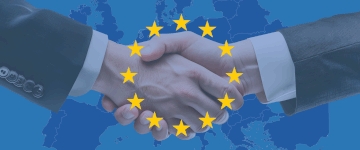
Communicate!
The proposal aims at encouraging, strengthening and effectively developing the participation of trade unions in European social dialogue in the Member States of Greece, Cyprus, Malta and Italy. One of the main aims of the project is to improve trade unions strategic communication, presentation and dissemination skills in order to promote debate and foster a dynamic social dialogue.
Strategic communication is a very important aspect of a trade union’s function, especially as:
• It publicises, clarifies and changes the union’s public image
• The union becomes better known and identifiable
• It improves the public opinion for the union
• It broadens and propagates the results of its activities and shares their benefits
• It mobilises its members and encourages their support and participation
Clearly, improved communication strategies will contribute significantly towards the successful implementation of the Community action programme to promote active European citizenship. To this end, the project seeks to bring together a host of European Countries with developed and less developed banking sectors and social dialogue. In Europe, the banking sector employs from 6% to 13% of the labour force in Southern and Northern Europe respectively and is considered the world’s biggest employer of women and people with disabilities.
The project partners are bank employees unions – supplemented by a training centre and consultants specialised on company’s internal climate and industrial relations. The project will exploit the valuable expertise already incorporated in the international partners in merging two significant components: deep technical knowledge of the banking sector in the new economy and the changes in social demands that follow, for example in the context of the Council Directives 94/45/EC and 97/74/EC.
The lead partner of the present project is the Hellenic Federation of Bank Employee Unions (OTOE), a powerful sectoral organisation that represents 62000 employees working in banks. OTOE, independently and through its labour institute (INE/OTOE), has accumulated significant expertise in the issues surrounding social dialogue from several initiatives. Moreover, the President of OTOE serves as vice-President of pioneering European Works Council at ABM-AMRO bank, representing employees from one of the most broadly based banking organisations.
Partners to the project include:
• Hellenic Federation of Bank Employee Unions (OTOE)
• ETYK – Cyprus Union of Bank Employees
• FABI – the Italian Trade Union of Bank Employees
• MUBE – Malta Union of Bank Employees
The project will proceed with the basic tenor of mutual co-operation, but with a centralized control. Two Management Board Meetings (MBM) will be held (one in the beginning and one in the end) with all partners present to discuss items of concern and to make plans for the future. In between these meetings a Project Team Meetings (PTM) will be held, with specific technical content, in which the Project Team will follow up and take corrective actions on the project’s workflow.
Normal communication between partners via e-mail is provisioned and considered complete and reliable; messages, documentation, data, inputs, etc. are exchanged via e-mail. In special cases communication could also be done via telephone and fax. The normal postal services are only used when the item is not considered urgent (about 10 days), otherwise e - mail or fast courier service is used.
Partnership and dedication to the project is granted because all partners have cooperated in other projects together and are regularly involved in social dialogue processes.







_360.jpg)

